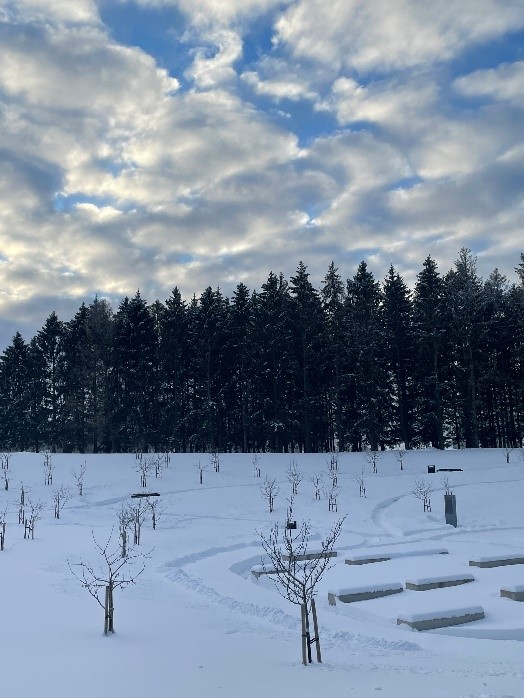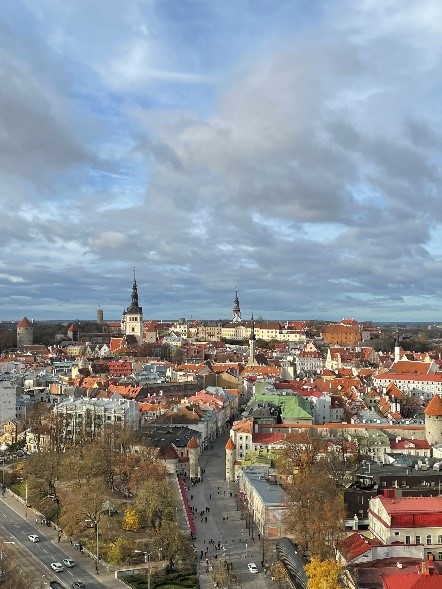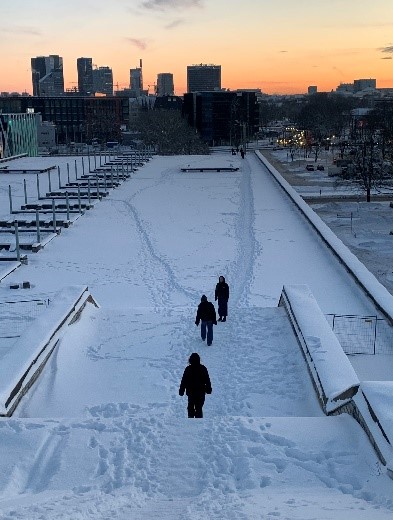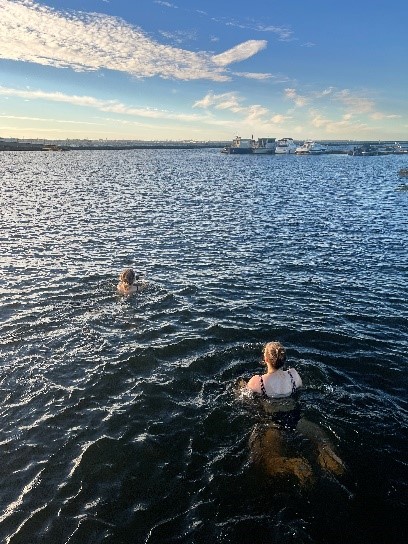In this week’s blog post, third-year French and Beginners’ Russian student, Catrin, tell us all about her year abroad spent in Tallinn, Estonia!

Since Russia’s invasion of Ukraine in 2022, the beginners’ Russian cohort spends the year abroad in Tallinn, Estonia, engaging in an intensive language programme for eight months. At first, it disappointed me that I would not experience the legend that is the traditional Russian ab initio year abroad to Yaroslavl’ (seriously, it’s described like folklore in the department), spending a long winter only 270km outside of Moscow with a firm and matronly ’babushka’. However, this disappointment was of course dwarfed by the gravity of the situation in Ukraine and my sympathies for those living through the atrocities.
When I left the UK for my first semester, with two large suitcases and no expectations, I was yet to know the magic of Russia’s tiny neighbour; I was yet to learn the intricacies and nuances of life in a post-Soviet country, and I was yet to feel that I had truly built a life and home for myself abroad. All these things had become true as my time in Estonia came to an end in May of 2023.

The language course provided by the organisation ‘LanguageLink’ in Tallinn is the same as the one previously given in Yaroslavl’. There are daily lessons in literature, translation, grammar, essay writing and speaking. The lessons take up half a day, in a morning or afternoon slot, and in them we covered a wide range of themes. The courses are all provided by native Russian speakers, but what made the lessons all the more interesting and unique was the politicised lens through which Russian as a language is considered in Estonia. In 2011, nearly 50% of Tallinn’s inhabitants spoke Russian as their first language and the vast majority of Estonians are fluent in, or can at least understand, Russian. Relations with the language were already strained after the collapse of the Soviet Union and the re-adoption of Estonian as the country’s official language and were then made even more precarious following the invasion of Ukraine.
Our teachers had very personal stories and interesting views on their relationship with Estonia and the Estonian language: some had lived and worked in Estonia their whole lives, and others had moved to Tallinn more recently following the start of the war. A particularly memorable lesson included a discussion about the implications of displaying a destroyed Russian tank in the capital’s ‘Freedom Square’, with plaques in Estonian, Russian and English explaining the choice to put it on show. We pondered the task of translating and conveying the message in three different languages in such a tense political climate.
I loved the afternoons and weekends we spent in Tallinn, and given that our classes only took place in the morning, we had lots of free time to fill with many cultural activities… and cinnamon buns. Tallinn itself is very architecturally interesting, like a cultural canvas onto which various eras of history have been painted and blended together. You can spend hours wandering around the picturesque medieval Old Town and traditional wooden houses in the neighbouring creative district, or get swept up in the remains of the Soviet era the traces it left (including the derelict Linnahall, which for you Christopher Nolan fans, is used in the film ‘Tenet’).

Alternatively, you could lean into a more modern, slightly Scandinavian way of life. All of this together is what makes it Estonian. Some of my favourite habits included a weekly trip to a coffee shop with a friend after our Friday morning class, taking turns to pick a new café and explore new districts by the very efficient Tallinn public transport system, as well as a Sunday afternoon trip to the sauna to go ice-swimming in the capital’s seaplane harbour.
Many of us lived in the east of Tallinn in Lasnamäe, often called ‘the Russian ghetto’ given the high number of Russian speakers living in the area. Many lived with babushkas, but a friend and I lived with a man who trained Ukranian soldiers and ran a metal-for-furniture business on the side (whatever floats your boat?). We enjoyed conversations about his work and his family, which was spread between Estonia and Ukraine. His mother came to stay with us for a month from Kyiv, and we really enjoyed learning about her life and interests in a mishmash of Russian and Estonian, which she was learning at the time.

However much I loved Tallinn, one of the best things about it was how easy it was to leave. As in, it has excellent (and cheap) transport links to many parts of Estonia and other capital cities. The ferry trip to Helsinki is around £25 and takes two hours, other Baltic capitals are easily reachable by bus- although the overnight trip home from Vilnius to Tallinn is not the best night’s sleep I’ve ever had. One reading week at the end of March was enough time for a whistle-stop tour of Scandinavia by train: a friend and I interrailed from Helsinki to Kemi in the north of Finland, across the north of Sweden, before seeing Trondheim and Oslo in Norway, finally making our way down to Copenhagen. Many of our classmates travelled further afield to Georgia, Uzbekistan and Hungary during these reading weeks.
Although not what I expected when I originally applied to study Russian at Oxford, my time in Tallinn was formative, fulfilling and most importantly, fun. The beginners’ Russian year abroad seems highly structured, with little space to make it your own, but all our cohort came home with different experiences, stories and memories. Looking back, I realise that Tallinn to me was originally a ‘plan B’, an alternative, and a place I never would have considered home. How wrong I was!
Catrin, French and Beginners’ Russian
You can read more about Catrin’s year abroad experiences in Estonia here on the blog.
